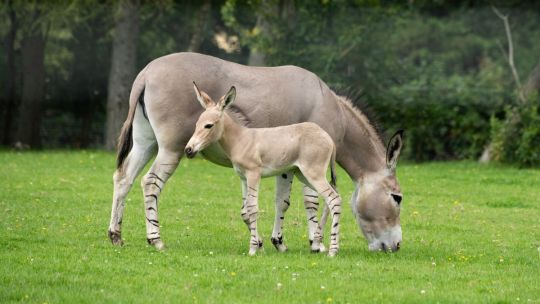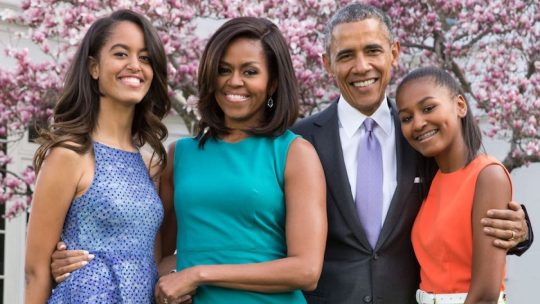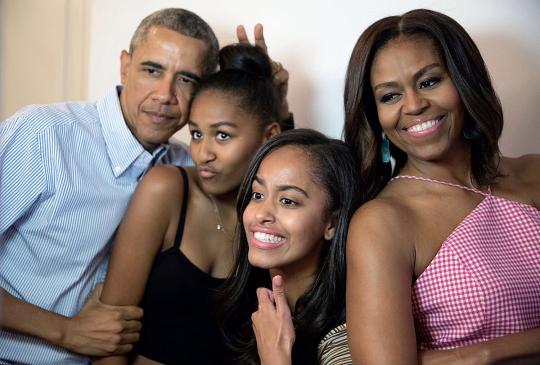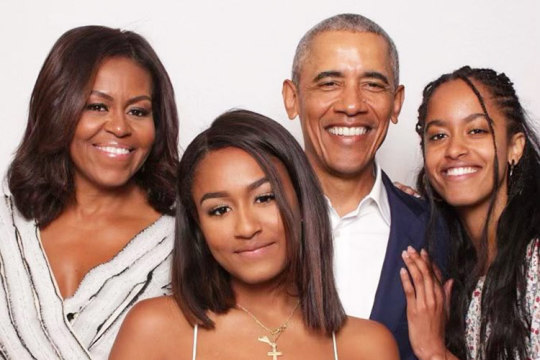#africans unite
Explore tagged Tumblr posts
Text
youtube
#freedom fighters#african heroes#inspiring stories#african stories#no retreat no surrender#humanity#africans unite#Youtube
1 note
·
View note
Text
"Buried among Florida’s manicured golf courses and sprawling suburbs are the artifacts of its slave-holding past: the long-lost cemeteries of enslaved people, the statues of Confederate soldiers that still stand watch over town squares, the old plantations turned into modern subdivisions that bear the same name. But many students aren’t learning that kind of Black history in Florida classrooms.
In an old wooden bungalow in Delray Beach, Charlene Farrington and her staff gather groups of teenagers on Saturday mornings to teach them lessons she worries that public schools won’t provide. They talk about South Florida’s Caribbean roots, the state’s dark history of lynchings, how segregation still shapes the landscape and how grassroots activists mobilized the Civil Rights Movement to upend generations of oppression.
“You need to know how it happened before so you can decide how you want it to happen again,” she told her students as they sat as their desks, the morning light illuminating historic photographs on the walls.
Florida students are giving up their Saturday mornings to learn about African American history at the Spady Cultural Heritage Museum in Delray Beach and in similar programs at community centers across the state. Many are supported by Black churches, which for generations have helped forge the cultural and political identity of their parishioners.
Since Faith in Florida developed its own Black history toolkit last year, more than 400 congregations have pledged to teach the lessons, the advocacy group says.
Florida has required public schools to teach African American history for the past 30 years, but many families no longer trust the state’s education system to adequately address the subject.
By the state’s own metrics, just a dozen Florida school districts have demonstrated excellence at teaching Black history, by providing evidence that they are incorporating the content into lessons throughout the school year and getting buy-in from the school board and community partners.
School district officials across Florida told The Associated Press that they are still following the state mandate to teach about the experience of enslavement, abolition and the “vital contributions of African Americans to build and strengthen American society.”
But a common complaint from students and parents is that the instruction seems limited to heroic figures such as the Rev. Martin Luther King Jr. and Rosa Parks and rarely extends beyond each February’s Black History Month.
When Sulaya Williams’ eldest child started school, she couldn’t find the comprehensive instruction she wanted for him in their area. So in 2016, she launched her own organization to teach Black history in community settings.
“We wanted to make sure that our children knew our stories, to be able to pass down to their children,” Williams said.
Williams now has a contract to teach Saturday school at a public library in Fort Lauderdale, and her 12-year-old daughter Addah Gordon invites her classmates to join her.
“It feels like I’m really learning my culture. Like I’m learning what my ancestors did,” Addah said. “And most people don’t know what they did.”"
-via AP News, December 23, 2024
#black history#african american history#african american#florida#united states#us politics#north america#education#public education#african american studies#public school#good news#hope
1K notes
·
View notes
Text
Hello everyone, I wanna highlight this Sudanese family's campaign.
It is only 5k! and they're half way there but haven't gotten any new donations in 4 days! So please Donate & share, let's help this lovely family out 🫶
For more information and Sudanese fund campaigns to support, kindly check this list
Update:
As of Aug. 30th the goal has been extended to $7k. I would like to remind everyone that this campaign feeds 20 ppl and it has been up for 4 months now and the situation has only gotten worse in Sudan, what with the current destructive floodings and heavy rain.
I ask of you to please continue sharing and donating, while I will focus on other Sudanese campaigns 🙏 thank you all.
Sorry for the tags ♡
@magnus-rhymes-with-swagness @appsa @blackfilmmakers @decolonize-the-everything @lesbianmaxevans @parab0mb @goodguydotmp3
#sudan#sudan war#sudan crisis#africa#african politics#humanitarian aid#donate and share#free sudan#RSF#uae#united arab emirates#free palestine#ال��ودان#حرب السودان#الامارات العربية المتحدة
2K notes
·
View notes
Text

The African wild ass foal was born at Marwell Zoo in the U.K. on Aug. 20.
(Image credit: Marwell Zoo)



1K notes
·
View notes
Text

"The decision from Judge Tanya M. Jones Bosier is meant to fulfill a $2.8 million default judgment entered against the Proud Boys by a different judge in DC in 2023 to get back damages incurred by the church during the December 2020 attack.
The two-page ruling says that all the group’s interests in the “Proud Boys” trademark will be transferred to the Metropolitan African Methodist Episcopal Church and that the organization and people associated with it must first get consent from the DC church to use the mark or sell any merchandise containing it."
CNN
Associated Press
NBC Washington
#destiel meme news#destiel meme#news#united states#us news#proud boys#tw racsim#finally some good fucking news#blm movement#black lives matter#black lives fucking matter#trademark#trademark rights#black church#metropolitan african methodist episcopal church#metropolitan ame church#enrique tarrio#vandalism
399 notes
·
View notes
Text
Happy Black History Month.
Our blog will be acknowledging and celebrating the achievements and progress that the black community has contributed to American history. Period.




#happy black history month#black history#black history month#african american#african america history#us politics#news#politics#us history#united states politics#united states news#united states history#usa history#usa politics#usa#usa news
84 notes
·
View notes
Text

This makes Tiana the Princess of Creole Cuisine!
🍽️👩🏾🦱👑
#history#princess tiana#leah chase#juneteenth#new orleans#african american history#disney#princess and the frog#united states#1950s#womens history#1960s#disney princess#animation#creole#soft girl#girl power#tiana's bayou adventure#disney history#black femininity#american history#civil rights#dooky chase#princesscore#black girl magic#historical figures#food history#landmark#nickys facts
137 notes
·
View notes
Text














Anti-literacy laws in many slave states before and during the American Civil War affected slaves, freedmen, and in some cases all people of color. Some laws arose from concerns that literate slaves could forge the documents required to escape to a free state. According to William M. Banks, "Many slaves who learned to write did indeed achieve freedom by this method. The wanted posters for runaways often mentioned whether the escapee could write." Anti-literacy laws also arose from fears of slave insurrection, particularly around the time of abolitionist David Walker's 1829 publication of Appeal to the Colored Citizens of the World, which openly advocated rebellion, and Nat Turner's Rebellion of 1831.
The United States is the only country known to have had anti-literacy laws.


Significant anti-African laws include:
1829, Georgia: Prohibited teaching Africans to read, punished by fine and imprisonment
1830, Louisiana, North Carolina: passes law punishing anyone teaching Africans to read with fines, imprisonment or floggings
1832, Alabama and Virginia: Prohibited Europeans from teaching Africans to read or write, punished by fines and floggings
1833, Georgia: Prohibited Africans from working in reading or writing jobs (via an employment law), and prohibited teaching Africans, punished by fines and whippings (via an anti-literacy law)
1847, Missouri: Prohibited assembling or teaching slaves to read or write
Mississippi state law required a white person to serve up to a year in prison as "penalty for teaching a slave to read."
A 19th-century Virginia law specified: "[E]very assemblage of negroes for the purpose of instruction in reading or writing, or in the night time for any purpose, shall be an unlawful assembly. Any justice may issue his warrant to any office or other person, requiring him to enter any place where such assemblage may be, and seize any negro therein; and he, or any other justice, may order such negro to be punished with stripes."
In North Carolina, African people who disobeyed the law were sentenced to whipping while whites received a fine, jail time, or both.
AME Bishop William Henry Heard remembered from his enslaved childhood in Georgia that any slave caught writing "suffered the penalty of having his forefinger cut from his right hand." Other formerly enslaved people had similar memories of disfigurement and severe punishments for reading and writing.
Arkansas, Kentucky, and Tennessee were the only three slave states that did not enact a legal prohibition on educating slaves.
It is estimated that only 5% to 10% of enslaved African Americans became literate, to some degree, before the American Civil War

#afrakan#african#kemetic dreams#brownskin#afrakans#african culture#africans#brown skin#afrakan spirituality#anti literacy#media literacy#financial literacy#digital literacy#information literacy#early literacy#ban books#ban#united states#united states of america#geopolitics#america#usa#politics#slavery#prison abolition#abolition#american history#african american history#civil rights
117 notes
·
View notes
Text


#black tumblr#black literature#black history#black community#black excellence#civil rights#black history is american history#civil rights movement#blackexcellence365#william h carney#us history#american#african american history#united states military
29 notes
·
View notes
Text
#florida#usa#united states#Black history#african american#education#history#american history#america
29 notes
·
View notes
Text

Y a r a
S h a h i d i
#yara shahidi#American#actress#producer#minneapolis#minnesota#united states#african american#choctaw#iranian
46 notes
·
View notes
Text
"South Carolina is preparing to put up its first individual statue for an African American on its Statehouse lawn, honoring a man who put on Confederate clothes in order to steal a slaveholder’s ship and sail his family and a dozen others to freedom during the Civil War.
But Robert Smalls isn’t just being honored for his audacious escape. He spent a decade in the US House, helped rewrite South Carolina’s constitution to allow Black men equality after the Civil War and then put up a valiant but doomed fight when racists returned to power and eliminated nearly all of the gains Smalls fought for.
State Rep. Jermaine Johnson can’t wait to bring his children to the Statehouse to finally see someone who is Black like them being honored.
“The man has done so many great things, it’s just a travesty he has not been honored until now. Heck, it’s also a travesty there isn’t some big Hollywood movie out there about his life,” said Johnson, a Democrat from a district just a few miles from the Statehouse.
The idea for a statue to Smalls has been percolating for years. But there was always quiet opposition preventing a bill from getting a hearing. That changed in 2024 as the proposal made it unanimously through the state House and Senate on the back of Republican Rep. Brandon Cox of Goose Creek.
“South Carolina is a great state. We’ve got a lot of history, good and bad. This is our good history,” Cox said.
What will the Robert Smalls memorial look like?
The bill created a special committee that has until January 15 to come up with a design, a location on the Statehouse lawn and the money to pay for whatever memorial they choose.
But supporters face a challenging question: What best honors Smalls?
If it’s just one statue, is it best to honor the steel-nerved ship pilot who waited for all the white crew to leave, then mimicked hand signals and whistle toots to get through Confederate checkpoints, while hoping Confederate soldiers didn’t notice a Black man under the hat in the pale moonlight in May 1862?
Or would a more fitting tribute to Smalls be to recognize the statesman who served in the South Carolina House and Senate and the US House after the Civil War? Smalls bought his master’s house in Beaufort in part with money made for turning the Confederate ship over to Union forces, then allowed the man’s penniless wife to live there when she was widowed.
Or is the elder Smalls who fought for education for all and to keep the gains African Americans made during the Civil War the man most worth publicly memorializing? Smalls would see a new constitution in 1895 wipe out African Americans’ right to vote. He was fired from his federal customs collector job in 1913 when then President Woodrow Wilson purged a large number of Black men out of government jobs.
Or would it be best to combine them all in some way? That’s how Republican Rep. Chip Campsen, an occasional ship pilot himself, sees honoring one of his favorite South Carolinians.
“The best way to sum up Robert Smalls’ life is it was a fight for freedom as a slave, as a pilot and as a statesman,” Campsen said."
-via AP, Octtober 23, 2024
#south carolina#united states#us politics#robert smalls#black history#black excellence#civil war#us history#memorial#african american history#good news#hope
355 notes
·
View notes
Text
Yesterday, here on tumblr, someone reached out to me, seeking help. And now I am here seeking yours. I don't care about your opinions and views. The matter of the fact is that everyone deserves to be treated as human beings, and they deserve the rights of human beings as we all do.
Right now, we have a violation of the LGBTQ+ community in Uganda after its government passed one of the harshest anti-gay laws, which includes punishment by death.
Here are two Al Jazeera articles on this:
1. Displaced twice: Gay Ugandans on the run face upheaval in Kenya
2. Ugandas anti lgbtq law causing wave of rights abuses activists say
Yesterday, @annoyingpaintertragedy (please take a look at their blog) reached out to me regarding this. They mentioned that many of Ugandas lgbtq civilians were forced to flee Uganda to neighboring Kenya. But situations are just as bad in Kenya. They spoke of the Kakuma refugee camps where they now live along with many other refugees.
I myself am just now learning of this. But if you have any information or links of organizations that may help regarding this situation, please send them to me or add them to the reblogs.
#uganda#homophobia#lgbtq#gay rights#lgbtq rights#same sex relationships#human rights#social justice#refugees#kakuma refugee camp#unhcr#united nations#kenya#african union#african nations#africa#south africa#important#signal boost#boost#lgbtqia
114 notes
·
View notes
Text
dijoni:
Black people we have our difference. But we must put away our petty difference to unite in the name of survival.. we should not let class and religion and sexism and his politics divide us. our survival depends on BLACK unity.#BlackHistoryMonth2025 .#BlackTwitter . #BlackTumblr
#black revolutionary collective#black tumblr#black twitter#blackfolk#desegregation#unite#africa#african diaspora#tiktok#melody angel#black unity#black dollars#economic unity#global black unity
22 notes
·
View notes
Text




Michelle Obama and her daughters, Sasha & Malia.
#michelle obama#barack obama#sasha obama#malia obama#black archives#black is beautiful#black women#black girl magic#black girl hair#natural hair#black girl moodboard#empowering women#family values#mothers love#american culture#black american culture#united states#african american#black history#blackwomenrule#black womanhood#blackexcellence#blackgirlmagic#black hollywood
513 notes
·
View notes
Text

The Wash and Go hairstyles are so simple, yet so beautiful and empowering!
👩🏽🦱💜👩🏿🦱
#history#black liberation#wash and go#hairstyles#natural hair movement#african american history#1960s#2000s#united states#black girl magic#womens history#black hairstyles#coquette#soft girl#women supporting women#american history#black hair#women empowerment#black beauty#soft black girls#civil rights movement#african american women#black femininity#sisterhood#hairstyle history#afro#african american culture#black coquette#nickys facts
35 notes
·
View notes